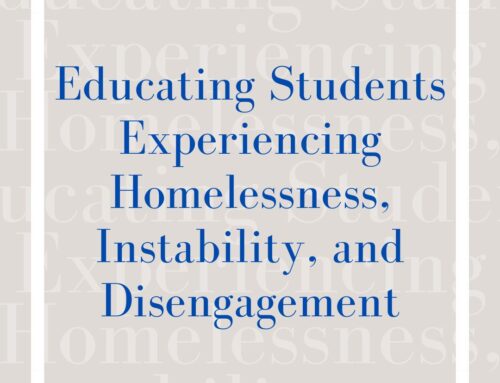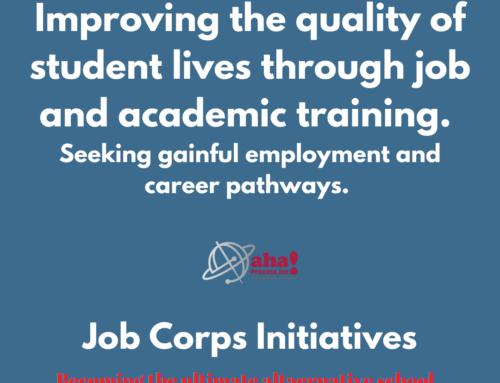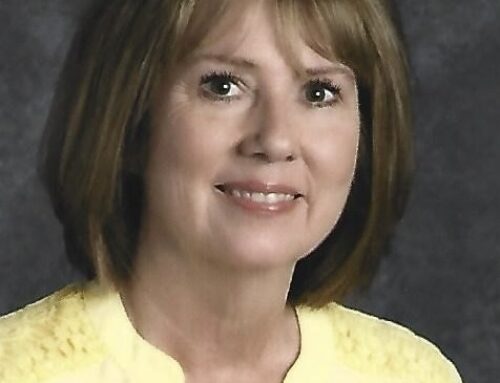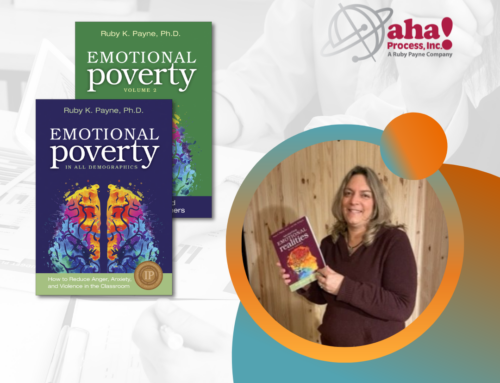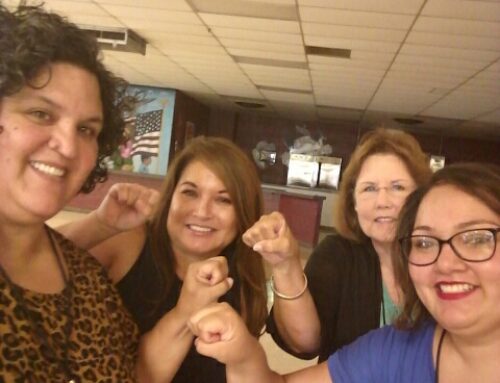In a time of change, when federal funding for education is often decreasing while expectations placed on schools are increasing, we must strive to get the most out of every dollar spent educating our students and their teachers. We are often asked the question, “We’ve done Framework and Research-Based Strategies, now what?” Schools across the nation have pondered the same question and have implemented aha! Process’s School Improvement Model and the associated K-12 professional development.
Ridgeroad Middle Charter School in North Little Rock, Arkansas, could be considered a “model school” for the School Improvement Model. The school was reconstituted as a charter school (from a traditional middle school) in 2003. From its inception as a charter school, Ridgeroad has been built around the work of aha! Process. Teachers in the school have received ongoing training from aha! Process consultants since before the charter school opened, and concepts from the training have been embedded into daily instruction with help from academic coaches. The teachers and staff have been committed to building relationships with their students and changing instructional practices to help students succeed.
Dr. William W. Swan, University of Georgia, conducted research at Ridgeroad for the first three years. His research found that when implemented with high fidelity, aha! Process’s School Improvement Model had a positive impact on student achievement. The full reports can be found here: http://www.ahaprocess.com/School_Programs/ResearchResults/.
In the years since Dr. Swan’s study, students have continued to make significant progress in both math and literacy. We recently analyzed the data from 2003–2010, including data from a comparison school. The full report can be found at: http://www.ahaprocess.com/files/Report_Ridgeroad04012011.pdf. Some highlights from the data include:
- Seventh- and eighth-grade students at Ridgeroad realized increases of 8% and 5% respectively in literacy from 2007–2009.
- Seventh- and eighth-grade students at Ridgeroad realized increases of 14% and 13% respectively in mathematics from 2007–2009.
- The percentage of seventh-grade Ridgeroad students scoring Proficient or Advanced on the Augmented Benchmark Exam was 7% higher than the control group in mathematics and 14% higher in literacy.
- The percentage of eighth-grade Ridgeroad students scoring Proficient or Advanced on the Augmented Benchmark Exam was 17% higher than the control group in literacy and 9% higher in mathematics.
- Economically disadvantaged students steadily increased performance in mathematics over time, increasing 28.5% from 2006–2009 (21.4% to 49.9%).
- Economically disadvantaged students steadily increased performance in literacy over time, increasing 15.5% from 2006–2009 (27.4% to 42.9%).
- Successful implementation of the aha! Process School Improvement Model has decreased staff mobility from 40% in 2003–2004 to 10% in 2007–2008.
These are the numbers that detail the successes, but as with anything, the best source is always those who are experiencing the successes firsthand. In this short video the faculty, staff, and students from Ridgeroad share their experiences in their own words. Take a few minutes and let them tell you the difference that the aha! Process model has made in their school and in each of their lives.
What successes have you had in your school after implementing components of our work? Please share your data, and you could be featured in a future blog.
-Alecia Chapman
Alecia Chapman is the Project Manager in the Educational Services division of aha! Process. She has a master’s degree is School Psychology and has worked for aha! since 2002. Alecia is the primary contact for all Multi-Year Partnership sites and those seeking K-12 professional development.

